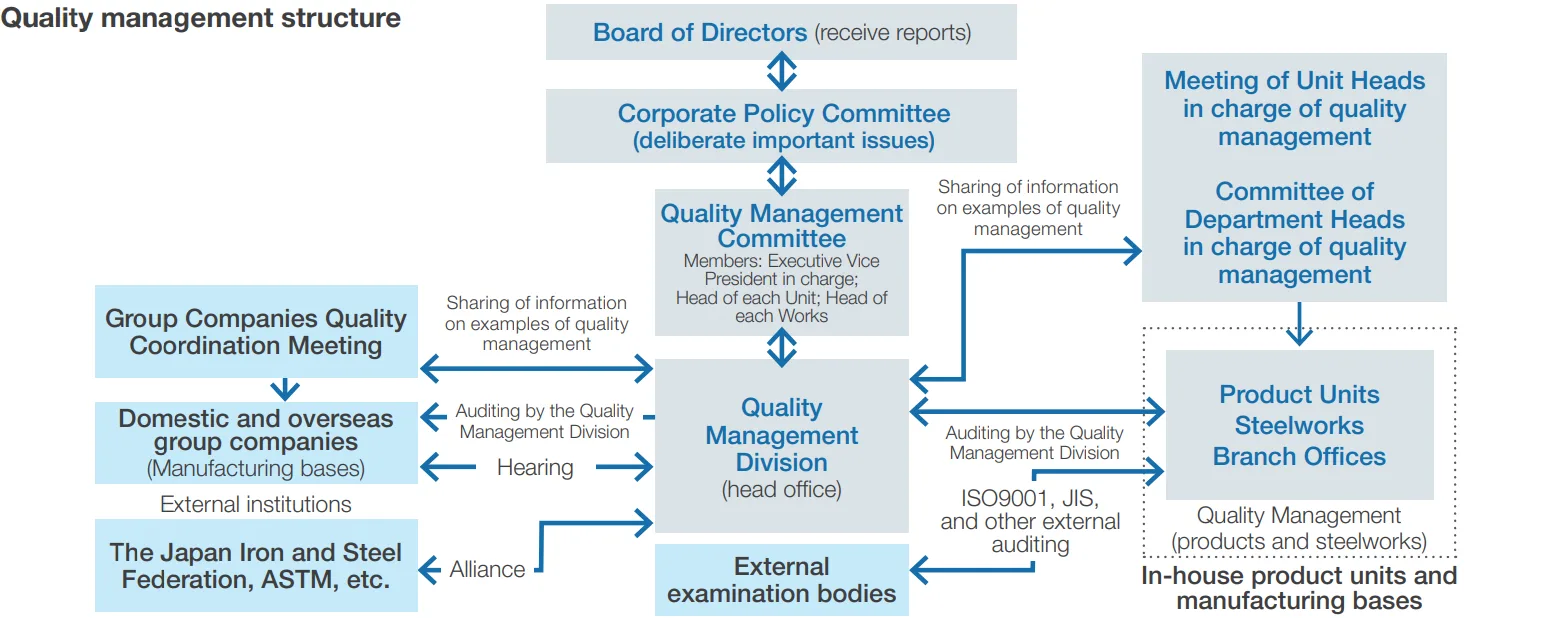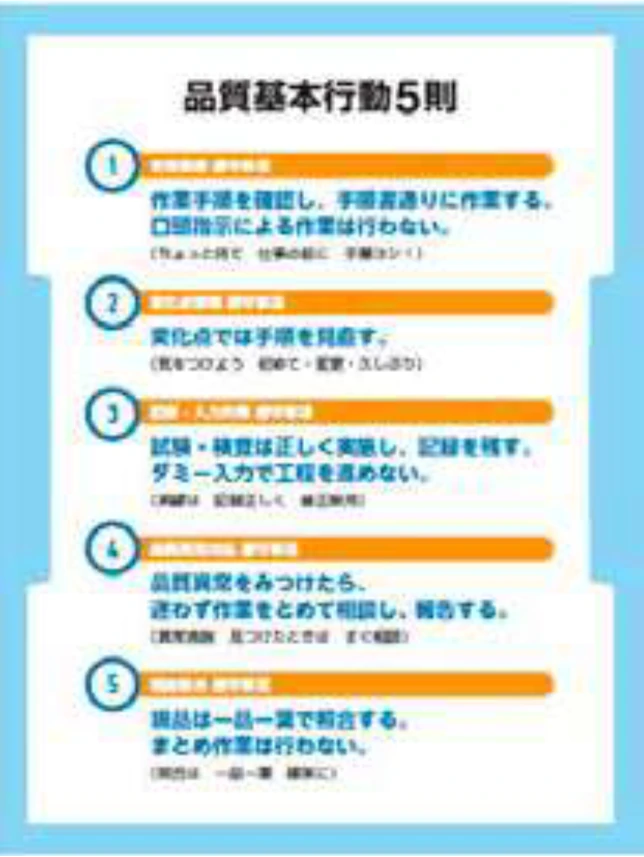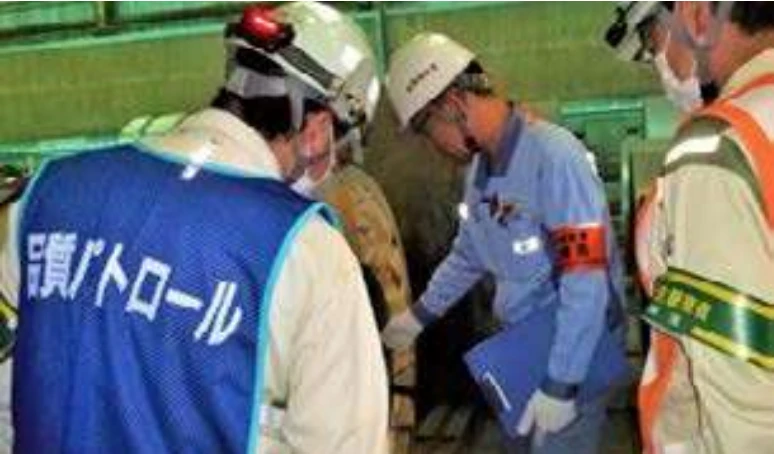Quality Management
Basic Policy
Quality management is one of the most important aspects in obtaining the trust and satisfaction of customers in the provision of products and services.
All of our group employees are responsible for thorough quality management.
The basic policy
As a basic policy in line with the Japan Iron and Steel Federation’s guidelines, aimed at strengthening the quality assurance system, we are promoting 1) the enhancement of education on quality compliance (compliance with laws and regulations), 2) activities to reduce quality risks, and 3) the extraction of quality risks through quality audit. Quality management issues are shared by the Quality Management Committee, chaired by the Executive Vice President in charge of quality management.
By having the Committee review actions to take to resolve the issues, we strive to maintain and improve our quality management system.
Organization for Quality Management
Nippon Steel’s quality management system is based on autonomous quality management activities by each steelwork, business unit, and group company including overseas ones.
The Quality Management Division, in cooperation with the steelworks and business units, promotes quality compliance education, behavioral risk reduction activities, and the extraction and correction of quality risks through quality audits. The code of conduct for quality, called the Five Basic Rules of Quality Behavior, has been made known to all employees, with a focus on improving awareness of quality compliance and preventing quality problems from occurring.
Information on quality-related events is promptly shared across the Group and at appropriate times measures are launched to resolve issues through standardization, systemization, and automatization. These measures are then implemented to enhance the identification management of actual products and to improve reliability of testing and inspection.

Target and KPI
- Systemization and automation aimed at more credibility in testing and inspection
Initiatives and Achievements
[Specific activities]
Education on quality compliance
Employees of the Company and the domestic and overseas Group companies receive quality compliance education. It covers such topics as the importance of compliance with laws and regulations, the impact that our products and work have on society, quality risk management, and internal rules and standards. Compliance cases which occurred in and out of the Company in the past have also been used as examples. This education takes the form of training that effectively uses quality e-learning and digital tools.
Activities to reduce behavioral risks

Based on the analysis of the causes of past quality issues, we have established the basic principles that employees involved in quality management should follow and are working to disseminate them as the Five Basic Rules of Quality Behavior. To improve the reliability of testing and inspection, we also work to eliminate risks from human intervention by automating data retrieval and introducing systems for product identification and product quality judgment before shipment.
Quality audits

The Quality Management Division performs periodic quality audits of the Company and the Group to enhance customer confidence. Audits include a review of compliance with the Japan Iron and Steel Federation’s Guideline, conformity with standards and specifications, and quality-related behavioral risks. We are nurturing auditors at steelworks and Group companies to strengthen the autonomous audit system. We also receive external reviews, such as those for ISO 9001 and JIS certifications, to raise the credibility of our quality management system.
Quality management system and standardization activities
Quality management system (ISO 9001 certification)
All steelworks of Nippon Steel are ISO 9001 certified. By implementing the quality management system, we ensure that the processes used to provide products and services to customers are appropriately managed. Following the reorganization of our manufacturing bases in Japan, we have integrated the quality management systems, which had been individually certified at the steelworks or area level. We will thereby efficiently proceed with activities to clarify each steelworks’ quality policy and to improve quality promptly and continuously.
Standardization activities
With regard to Japanese and international steel standards (JIS, ISO, and ASTM), we promote the establishment and revision of standards by participating in the standardization activities led by the Japan Iron and Steel Federation and contribute to the standardization (rules development) of steel products through public-private cooperation.
Building systems for standardization also helps us nurture human resources specialized in standardization.